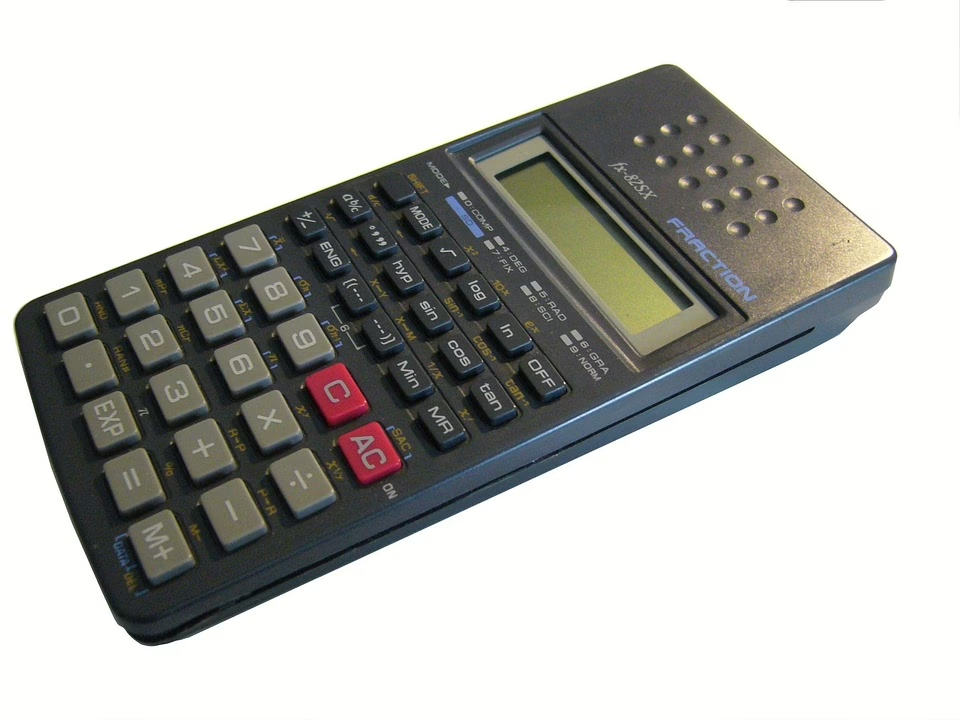The Science of Eating: Harnessing a Nutrition Calculator for Better Choices
Introduction
In today’s fast-paced world, making informed choices about what we eat can be a daunting challenge. With the abundance of food options available, understanding the nutritional value of our meals has become more important than ever. The science of eating is not just about calorie counting or restricting food intake; it’s about understanding how various nutrients affect our bodies and using tools like nutrition calculators to make better choices. This article will explore the science of nutrition, the role of a nutrition calculator, and how we can harness its power to enhance our well-being.
Understanding Nutrition
Macronutrients vs. Micronutrients
Nutrition can be categorized into two main types of nutrients: macronutrients and micronutrients.
-
Macronutrients are nutrients that provide energy and are required in larger quantities. They include carbohydrates, proteins, and fats. Each of these macronutrients has a unique role in the body:
- Carbohydrates are the body’s primary energy source and are found in foods such as grains, fruits, and vegetables.
- Proteins are crucial for growth, repair, and maintenance of tissues. They can be sourced from meat, dairy, legumes, and nuts.
- Fats are essential for hormone production and the absorption of fat-soluble vitamins (A, D, E, and K). Healthy fats include those from fish, avocados, and olive oil.
-
Micronutrients, on the other hand, are vitamins and minerals required in smaller amounts but are essential for various metabolic processes. For instance, vitamin C supports the immune system while calcium is vital for bone health.
The Importance of a Balanced Diet
A balanced diet, which includes an appropriate combination of macronutrients and micronutrients, is essential for overall health. Research shows that a balanced intake can lead to numerous health benefits, including a reduced risk of chronic diseases like heart disease, diabetes, and obesity [modern_footnote_source].
The Role of a Nutrition Calculator
What is a Nutrition Calculator?
A nutrition calculator is an online tool or mobile application that helps individuals analyze the nutritional content of the foods they consume. By providing detailed information about macronutrients, micronutrients, and overall caloric intake, these calculators empower users to make informed dietary choices.
Features of a Nutrition Calculator
- Caloric Intake: Provides a breakdown of total daily calorie needs based on individual factors like age, sex, weight, height, and activity level.
- Macronutrient Breakdown: Displays the percentage of calories coming from carbohydrates, proteins, and fats, helping individuals tailor their diets according to their health goals.
- Micronutrient Tracking: Allows users to monitor their intake of essential vitamins and minerals, ensuring they meet their nutritional requirements.
- Food Database: Typically includes a comprehensive database of foods, allowing users to easily search for and log their meals.
Benefits of Using a Nutrition Calculator
-
Awareness: Nutrition calculators raise awareness about the nutritional value of the foods we eat. Many people are unaware of how many calories they consume daily or the macronutrient distribution in their meals.
-
Customized Nutrition Plans: By inputting personal data, users can receive tailored nutrition advice. This customization is particularly useful for individuals with specific dietary needs, such as athletes, those with food allergies, or individuals following a particular diet style (e.g., ketogenic, vegan).
-
Goal Tracking: Whether the aim is weight loss, muscle gain, or simply maintaining a healthy lifestyle, nutrition calculators provide the tools to track progress towards these goals.
-
Mindful Eating: By logging meals and snacks, individuals can become more mindful of their eating habits. This practice can lead to improved food choices and reduced emotional eating.
-
Education: Many nutrition calculators provide educational resources, including articles, tips, and recipes, helping users grow their understanding of nutrition.
How to Use a Nutrition Calculator Effectively
Set Clear Goals
Before diving into using a nutrition calculator, it’s essential to define your nutrition goals. Are you aiming to lose weight, gain muscle, or simply eat healthier? Having clear objectives allows the calculator to generate meaningful insights tailored to your needs.
Input Accurate Data
To get the most accurate readings, it’s crucial to enter precise information about yourself, including age, weight, height, activity level, and dietary preferences. This data ensures that the calorie and nutrient guidelines provided are relevant to your personal situation.
Track Everything
Consistency is key when using a nutrition calculator. Aim to log all meals, snacks, and beverages, as even small “extras” can add up and skew your results. Many calculators also provide barcode scanning features, making it easier to input packaged foods.
Stay Flexible
While nutrition calculators are powerful tools, it’s essential to approach them with flexibility. Life is unpredictable; sometimes, you may not meet your nutritional goals for the day. The key is to view it as a long-term journey rather than a strict regimen.
Consult a Professional
If you’re unsure about your nutritional needs or how to interpret the data from the calculator, consider consulting a registered dietitian or nutritionist. They can provide personalized guidance and support tailored to your unique circumstances.
Practical Application of Nutrition Calculators
Meal Planning
One of the most practical applications of a nutrition calculator is in meal planning. Pre-planning meals not only helps in ensuring a balanced intake but also saves time and reduces impulse eating.
-
Creating Balanced Meals: Utilizing a nutrition calculator during meal prep allows individuals to create meals that align with their macronutrient and micronutrient goals. For instance, if you’re aiming for higher protein intake, you might add lean chicken or legumes to your meals.
-
Portion Control: Calculators can help in understanding appropriate portion sizes. By seeing how different serving sizes affect caloric intake, individuals can make better decisions about their meals.
-
grocery Shopping: Before heading to the grocery store, using a nutrition calculator to plan meals can streamline shopping. Make a list of nutritious foods that fit within your dietary goals, ensuring that you only purchase healthy choices.
Managing Special Diets
Whether you’re managing food allergies, following a ketogenic diet, or aiming for a plant-based lifestyle, a nutrition calculator can guide you in making appropriate selections.
-
Allergy Management: Inputting specific dietary restrictions into the calculator can help avoid allergens while still meeting nutritional needs.
-
Diet Adherence: For those on specific diets like keto, calculators can help track macronutrient ratios (e.g., keeping carbs low while increasing fat intake) to ensure adherence and effectiveness.
-
Cultural Considerations: For individuals following culturally specific diets, nutrition calculators can assist in identifying nutritious foods that align with cultural practices, ensuring healthy eating without sacrificing traditions.
Monitoring Health Conditions
For those managing chronic health conditions, nutrition calculators can serve as vital tools in diet management.
-
Diabetes: A nutrition calculator helps in tracking carbohydrate intake, crucial for managing blood sugar levels.
-
Hypertension: Individuals with high blood pressure can use nutrition calculators to monitor sodium intake while ensuring a balanced diet rich in potassium.
-
Weight Management: The calculator allows users to monitor their caloric intake in relation to their activity levels, helping manage weight effectively.
The Science Behind Nutritional Choices
Nutritional Psychology
Emerging research in nutritional psychology suggests that what we eat significantly affects our mental health. Certain nutrients, such as omega-3 fatty acids and antioxidants, have been linked to improved mood and cognitive function [modern_footnote_source]. Using a nutrition calculator can help ensure adequate intake of these vital nutrients.
Gut Health
Recent studies have focused on the importance of gut health and its relationship to overall wellness. The gut microbiome thrives on diverse diets rich in fiber, which can play a crucial role in mental and physical health. Keeping track of fiber intake through a nutrition calculator can promote better gut health.
The Role of Hydration
While nutrition calculators primarily focus on food intake, hydration is equally vital. Many calculators offer water intake tracking, encouraging users to stay hydrated, which is crucial for digestion, energy, and overall health.
Challenges and Considerations
Information Overload
With countless nutrition calculators available online, it can be overwhelming to choose the right one. Users should look for calculators that are evidence-based, user-friendly, and customizable.
Accuracy of Food Databases
While most nutrition calculators strive for accuracy, discrepancies in food databases can lead to incorrect tracking. It’s advisable to cross-reference with trusted sources or consult nutrition labels when in doubt.
Balance and Flexibility
While tracking nutrition can be helpful, it’s crucial not to let it become an obsession. The focus should remain on overall health rather than perfection. Flexibility is essential for enjoying food and maintaining social connections.
Conclusion
Harnessing the power of a nutrition calculator can revolutionize how we approach food choices. By understanding nutritional science and utilizing these tools effectively, individuals can make informed decisions that lead to better health outcomes. From meal planning and managing special diets to improving mental health, the applications are vast and beneficial. Ultimately, the goal of improving nutritional habits should stem from a place of love for oneself, paving the way for a healthier lifestyle and a more fulfilling relationship with food.
As science continues to shine a light on the intricate connections between diet and health, embracing digital tools like nutrition calculators is an empowering step towards achieving our wellness goals.


























Add Comment